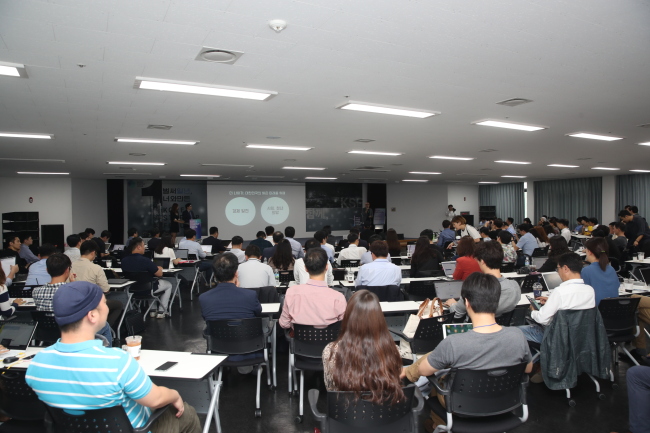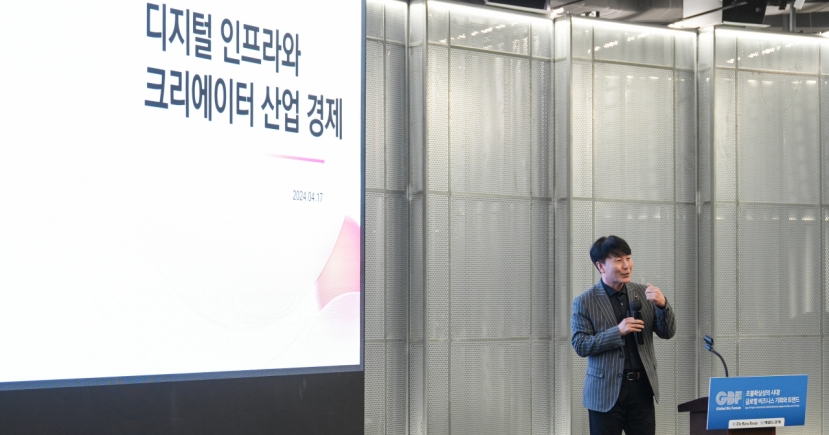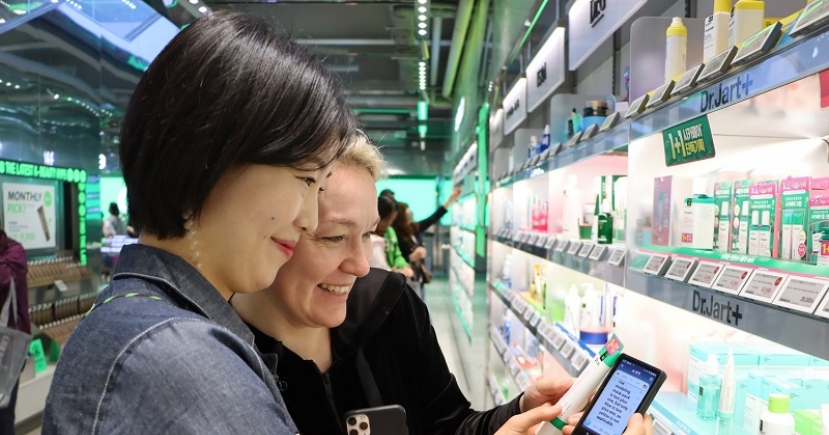Startups
Korea at risk of becoming ‘digital colony’: Woowa Bros. CEO
[THE INVESTOR] Kim Bong-jin, CEO of Woowa Brothers -- operator of Korea’s most popular food-delivery app Baedal Minjok -- warned that the country is turning into something of a digital colony dominated by foreign tech companies.
“Korea has one of the most advanced internet technologies, but it is becoming a digital colony with our internet dominated by tech services developed by foreign companies,” Kim said at the first anniversary of the Korea Startup Forum on Sept. 26.
The head of one of Korea’s earliest and most successful startup in the delivery business who is chairing the forum also touched on the hurdles that local startups face, with the biggest being too much red tape.
 |
Woowa Brothers CEO Kim Bong-jin talks at the first anniversary event of the Korea Startup Forum on Sept. 26 in Seoul. (Photo: Korea Starup Forum) |
“While our global competitors are busy with innovation, we put half of our resources into tackling regulatory hurdles,” he said, adding that he believes more than 40 of the top 100 global startups in terms of attracting investment would never have been launched if they had set up shop in Korea.
Kim urged the country to convert to a negative regulation format from the current positive regulation system. Adopted by countries like the US and China, negative regulations let the industry do what it wants except for a strict list of things they must not do. So most new businesses and services are considered legal unless they are expressly banned. On the other hand, the positive regulation system lists what’s permitted and anything not covered is deemed banned. Consequently, industry watchers believe it buries new companies and businesses under permits.
Turning to startups, Kim called on them to do their part to change the negative perception of entrepreneurs.
“People frequently question if startups will turn into yet another conglomerate once they become big,” Kim said.
“This reflects people’s perceptions about businesses. So we should work toward changing this assessment by promoting how startups could make social contributions beyond being commercial,” Kim said.
As a part of such plans, the forum unveiled the declaration of a so-called “new economic system,” which includes promises against illegal transfer of managerial rights to offsprings and to prevent unreasonable family management.
The Korea Startup Forum launched with 30 members a year ago now has 115 members companies including Yanolja and Korea NFC.
By Park Ga-young (gypark@heraldcorp.com)








